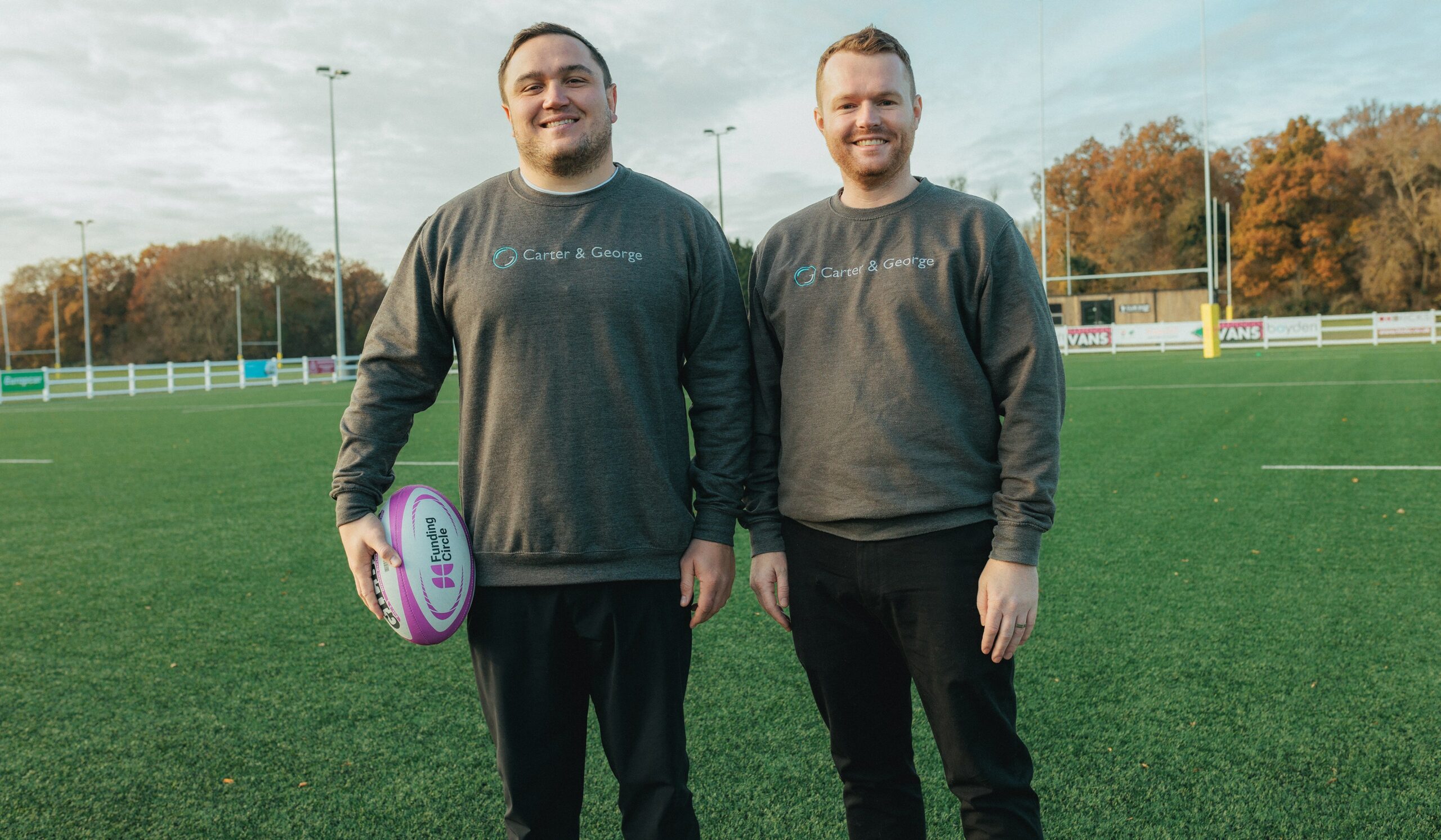Whenever Jamie George visits the Harpenden branch of his fledgling chain of physiotherapy clinics, the England rugby union captain can’t help taking a trip down memory lane. It was in this Hertfordshire building that a 16-year-old George sat down for his first date, back when it was a branch of the Prezzo restaurant chain. Now, it’s one of nine Carter & George physiotherapy clinics around the country.
“That relationship fizzled out,” chuckled George, who grew up five minutes away. “But it’s pretty surreal to have our names over the door now.”
For the England hooker, Carter & George represents the second phase of his career — but he’s not done with rugby just yet. Today, George, 34, will make his 97th appearance for England when he leads the team out against Japan at the Allianz Stadium, Twickenham. He is desperate to arrest a run of three chastening defeats in this year’s autumn internationals.
George began thinking about his post-rugby career way before peaking as a sportsman. He co-founded Carter & George with childhood friend Rhys Carter back in 2017, before he had even been selected in the England starting line-up.
“The idea is to deliver the same level of care I get as a professional sportsman to the general public — whether that’s strength and conditioning, shockwave therapy, ultrasound scans,” said George.
Advertisement
George has invested £105,000 of his own money in the venture. Last year, Carter & George, which typically charges between £50 and £60 for a 30-minute session, borrowed additional funds through small business lender Funding Circle to bankroll plans to open 30 clinics in five years. Since then, the practice has gone from having three clinics to nine, principally in the home counties. While George won’t divulge specifics, he says the business is profitable.
His parents, who were both teachers, impressed on him from an early age that he needed to look beyond rugby. While professional rugby players of George’s calibre are paid handsomely, it’s not enough to allow them to put their feet up once they hang up their boots, not least because of the salary cap in the English club game.
“We’ve lived our dream all our lives … but I’ve seen so many people retire and struggle because they didn’t know what they were going to do, and they didn’t realise the [amount of] time they would have when they weren’t playing rugby,” he said. “I’ve got huge ambitions to grow this business when I retire; the idea of being an entrepreneur is massively appealing to me.”
George leads a team talk before a match in Italy in February. “I don’t think I’m ready to leave the game entirely”
DAN MULLAN/GETTY IMAGES
George worked with David Jones, the personal development manager at his club Saracens, to flesh out his ideas for the second act of his career. He took inspiration from former Saracens players Alistair Hargreaves and Chris Wyles — who co-founded craft beer business Wolfpack Lager, named after the team’s so-called “wolfpack” defensive tactics — as well as former club captain Brad Barritt, who co-founded Tiki Tonga coffee roasters in 2016.
“Seeing the passion and enjoyment they were getting out of having something outside the game was huge for me,” said George. “I looked up to these guys as rugby players, looked up to these guys as men, and I wanted to be just like they were.”
Advertisement
He cites George Kruis and Dominic Day as the most successful rugby players turned businessmen. The former internationals, with England and Wales respectively, started supplements brand fourfive, which is now stocked in Sainsbury’s and Holland & Barrett.
An honourable mention should also go to World Cup-winning full back Josh Lewsey, who has had a successful career in finance, most recently running the Asia-Pacific region for financial advisory firm Teneo.
George has an enviable fitness record for a rugby player, which he attributes to time spent on the physio tables receiving shockwave treatment to help him avoid injuries.
Outside his hectic international schedule, George typically spends about one day a week working on the business, with the hunt for new sites for his clinics a top priority. Unlike his co-founder, George is not a trained physiotherapist and he does not administer treatment, despite many client requests.

George and his business partner, the trained physiotherapist Rhys Carter
FUNDING CIRCLE
He wants to help Carter & George by using his name and contacts to send its physios into City offices to treat workers. He is betting that more and more companies will equip their offices with gyms and physio facilities, as perks for hard-working employees. That “high effort, high reward” culture is one with which he identifies. “I come from a club where the philosophy is, ‘We’ll treat you unbelievably well, but you’ve got to work unbelievably hard.’ That is something I massively believe in.”
Advertisement
While George is excited by the prospect of working at Carter & George full time, he can’t quite bear the thought of leaving rugby behind.
“I don’t think I’m ready to leave the game entirely … but I’m not sure exactly what that looks like yet.” He is considering whether to coach or try his hand at media work.
In the meantime, George hopes he has “a good few years” left playing rugby at the highest level, and he only needs another three three test caps to become just the seventh Englishman to represent the national team 100 times. His business ambitions will have to wait just a little while yet.
This post was originally published on here







